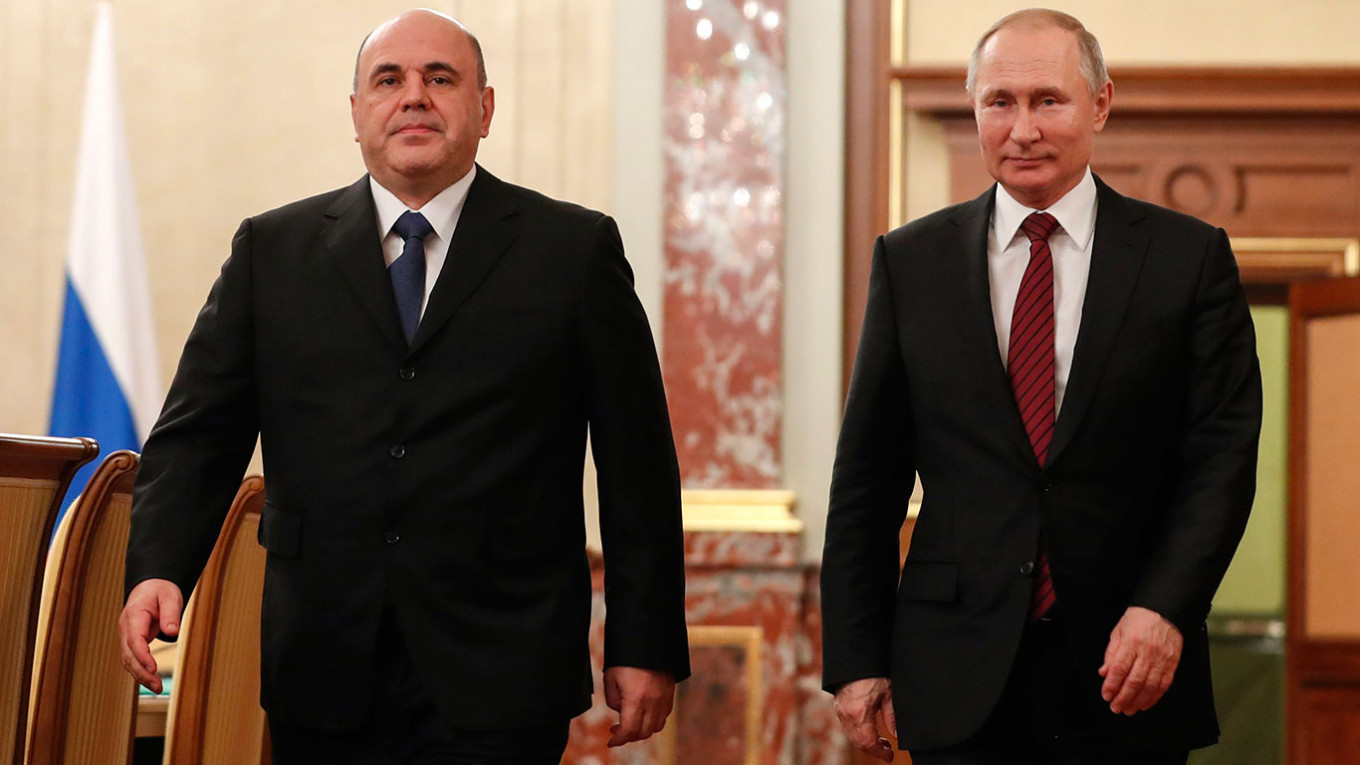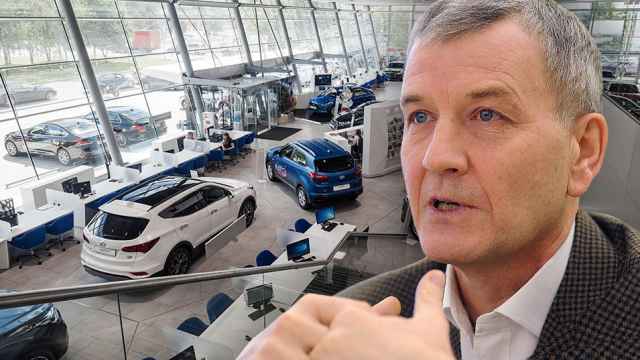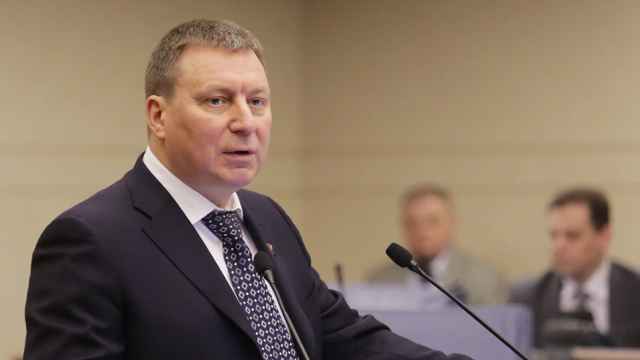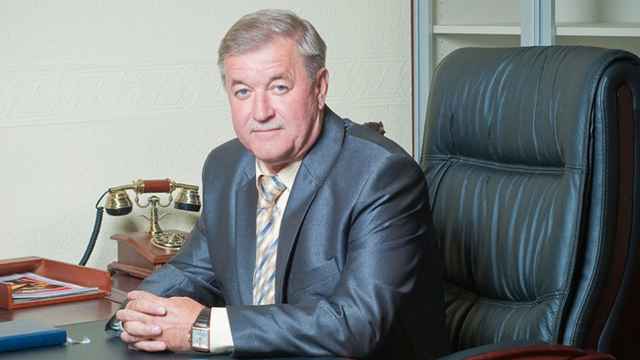With the tedious necessity of elections out of the way, the Kremlin now seems set on taming the regional leaderships of the country, although it is an interesting question whether the real impulse comes from Vladimir Putin or Prime Minister Mikhail Mishustin.
The initiative appears to come from two Russian lawmakers, Pavel Krasheninnikov and Andrei Klishas from the Duma and Federation Council, respectively.
However, they are established locomotives of government legislation and were prime movers behind last year’s constitutional changes, so this cannot be considered a maverick initiative.
Their bill, the snappily titled “On general principles of organizing public power in the constituent entities of the Russian Federation,” proposes a series of changes to regional government in the name of giving more practical meaning to the “unified system of public authority.”
Having been floated last year, quite what this “unified system” would be remained unclear until now. However, judging by the new bill, which seems likely to pass speedily into force, we can now judge it to be an attempt to restore a “power vertical” that was never really as powerful or as vertical as many inside and outside Russia claimed.
Heads could roll
In terms of the detail, the main changes would seem to be ones of standardization and subordination.
The existing positions would all now be titled “heads” of their regions, whether they are now governors or, as it Tatarstan, with the lofty title of “president.” It may only be symbolic, but symbolism matters in politics: there’s only one president in Russia.
Likewise, a mixed array of local laws and rules on tenures will be replaced with a common five-year term of office. However, existing term limits will be removed, allowing those local heads able to command at least adequate support in their regions and the confidence of Moscow to remain in position as long as they (and the Kremlin) please.
This would also allow Moscow Mayor Sergei Sobyanin — who gets to keep his title — the right to stay in office after his current, second term, which ends in 2023.
On the other hand, the president can still dismiss or suspend any of these heads at will on grounds of “loss of confidence,” and the new bill would bar anyone suffering this fate from heading any region for a full five years.
The role of the regional heads would be much more clearly about political stewardship rather than executive leadership, though.
Already certain federal ministries and agencies — notably those with security roles — appoint local officials. Under the new bill, a range of others, responsible for activities such as education, health, finance, housing and construction, will get the same rights, further curtailing a head’s capacity to pick his or her own team.
When a head is unhappy with the diktats of the center, then any disagreements would be taken to the State Council, the largely moribund body given a limited refresh by the constitutional reforms.
This is still a secondary and consultative body dominated by Putin and the Presidential Administration, though. Its role as the space where the tsar can hear petitions from his boyars is a traditional one — and equally traditional is the practice that after he has heard them make their case, the tsar decrees and the boyars must obey.
Why this, why now?
There is little doubt that the bill will pass, and although there will be more than this to the “unified system of public authority,” it does suggest that this is essentially a way of strengthening and modernizing the centralization of administrative power in Russia.
After all, today’s Kremlin — like its Soviet and Tsarist predecessors — has long grappled with the challenge of turning authority in theory into practice in this massive country, where patronage, localism, corruption and the practical challenges facing plenipotentiaries who must work with and through local power structures all combine to undermine and sometimes even reverse any “power vertical.”
It is hard to see Putin himself having a hankering to apply more "manual control" to education in Birobidzhan and zoning policy in Barnaul, though. What may be the sources of this drive for this renewed centralization?
In part, it is house-keeping, a natural consequence of the constitutional changes, that created new ambiguities — such as the role of the State Council — that needed to be addressed.
The “unified system of public authority” seems to have been much like the constitutional changes or even — heretical though such parallels would be in today’s Russia — Gorbachevian catch-phrases such as perestroika, ideas thrown out to trigger debate, whose definition could be determined later, depending on the outcome of those public and private discussions.
In part, it is because of the Presidential Administration’s attempts to manage the political process across the country.
The Duma elections were, in effect, as much as anything else a dress rehearsal for the all-important 2024 presidential poll, and a national focus group to assess the mood of the nation. In the new structure, local leaders would be much more clearly tasked with controlling their electorates and delivering on the political tasks set by the center.
Mishustinism-Techno-authoritarianism
However, in practice these reforms may well do less to empower Putin and his political technologists, and more Mishustin, and the apparatus of the government.
His increasingly somnolent predecessor Dmitry Medvedev had apparently resigned himself to being little more than convenor of the cabinet and Putin’s echo.
Mishustin, by contrast, has the ambition actually to manage and sees Russia’s future in a smoothly-operating government machine that is built on real-time data flows, artificial intelligence, and tight command-feedback loops.
On Kutuzovsky Prospekt, across the river from the White House, Mishustin has built a Government Coordination Centre, in many ways a civilian counterpart to the National Defense Management Center. In this administrative fusion hub, data from 85 Regional Governance Centers and a host of other sources are brought together in round-the-clock monitoring of the workings of the country and the government.
This is just part of Mishustin’s desire to do for the national government, in effect, what he did so successfully for the Tax Service: to minimize the impact of human fallibility and corruption by making as much of the process automated as possible.
As he has come to realize, it is all very well being able to monitor all the indices of power, spending and progress from Moscow — the point is to be able to control them.
In this respect, Mishustin has been making his own behind-the-scenes contribution to the debate about the “unified system of public authority” and seems to have been able to make the case to the tsar than the boyars need not just manual but digital control, and when the indices demand, they need to be dismissed.
Of course, techno-authoritarianism depends not just on the quality and accuracy of the data input, but also the plausibility of the targets that are set. Many have tried to bring central command to Russia. Some have been foiled by corruption and conspiracy, others by the unrealism and dogmatism of their ambitions.
The new bill is intended to provide a renewed impetus to central control, but it cannot guarantee that Mishustinism-Techno-authoritarianism will fare any better.
A Message from The Moscow Times:
Dear readers,
We are facing unprecedented challenges. Russia's Prosecutor General's Office has designated The Moscow Times as an "undesirable" organization, criminalizing our work and putting our staff at risk of prosecution. This follows our earlier unjust labeling as a "foreign agent."
These actions are direct attempts to silence independent journalism in Russia. The authorities claim our work "discredits the decisions of the Russian leadership." We see things differently: we strive to provide accurate, unbiased reporting on Russia.
We, the journalists of The Moscow Times, refuse to be silenced. But to continue our work, we need your help.
Your support, no matter how small, makes a world of difference. If you can, please support us monthly starting from just $2. It's quick to set up, and every contribution makes a significant impact.
By supporting The Moscow Times, you're defending open, independent journalism in the face of repression. Thank you for standing with us.
Remind me later.








